Keywords: Moral Authority
There are more than 200 results, only the first 200 are displayed here.
-
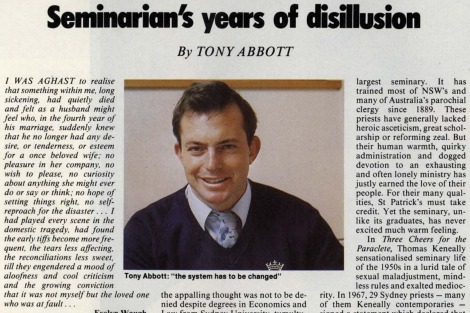
RELIGION
- Michael McVeigh
- 15 October 2015
11 Comments
Many in the Church would echo Tony Abbott's feelings on the dangers a theological environment 'at war with itself' presents to its moral authority. Similarly, there are many conservative politicians and members of the press who look at the current political commentary — marked by discussion rather than authority — and wonder what a government can accomplish in such an environment. Not surprisingly, Cardinal George Pell — described by Abbott as a 'fine human being and a great churchman' — is among those pushing back against the dialogue at the current Synod on the Family.
READ MORE 
-

- Jenny Te Paa
- 09 October 2015
16 Comments
Thank you Francis, for although you have not spoken at any length about theological education per se — any more than you have spoken about the status of women per se — in spite of these somewhat startling omissions, this indigenous lay woman theological educator feels no less inspired, comforted, reassured, blessed, beyond imagining by your gentle, wise, insistent and prophetic urgings.
READ MORE
-
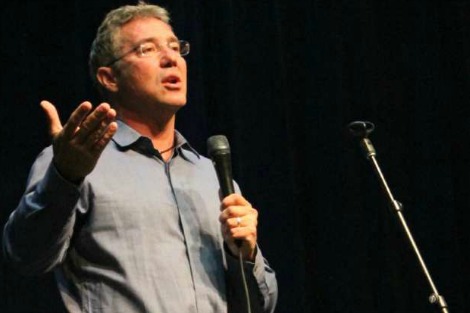
AUSTRALIA
- Andrew Hamilton
- 08 October 2015
25 Comments
Banning people from entering countries has become the flavour of the month. Two US citizens, hip-hop artist Chris Brown and anti-abortion advocate Troy Newman, were banned from entering Australia. It is sometimes right to exclude people. But unless the processes are transparent and the need clearly demonstrated, such exclusion has costly consequences for the life of the community. It privileges power over reflection, and suggests character is defined unchangeably by past behaviour.
READ MORE 
-

- Frank Brennan
- 18 September 2015
Pope Francis's concerns are not narrowly dogmatic or pedagogical but universally pastoral. He knows that millions of people, including erstwhile Catholics, are now suspicious of or not helped by notions of tradition, authority, ritual and community when it comes to their own spiritual growth which is now more individual and eclectic. He wants to step beyond the Church's perceived lack of authenticity and its moral focus on individual matters, more often than not, sexual. He thinks the world is in a mess particularly with the state of the planet — climate change, loss of biodiversity and water shortages, but also with the oppression of the poor whose life basics are not assured by the operation of the free market, and with the clutter and violence of lives which are cheated the opportunity for interior peace. He is going to great pains to demystify his office. He wants all people of good will to emulate him and to be both joyful and troubled as they wrestle with the probl
READ MORE
-
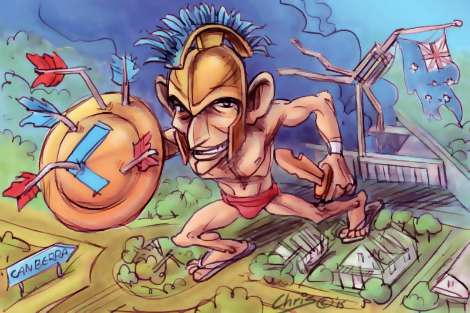
AUSTRALIA
- Andrew Thackrah
- 15 September 2015
24 Comments
After Malcolm Turnbull announced on Monday afternoon that he was challenging Tony Abbott for the LIberal leadership, commentators were unanimous in their speculation that Abbott would not give up the prime ministership without a fight. The pugnaciousness that characterised his political style was similarly part of the playbook of Canadian PM Stephen Harper, who was also seen to base his interaction with political adversaries on their 'standing' rather than debating policy. In Abbott's case this turned out to be a fatal flaw.
READ MORE 
-
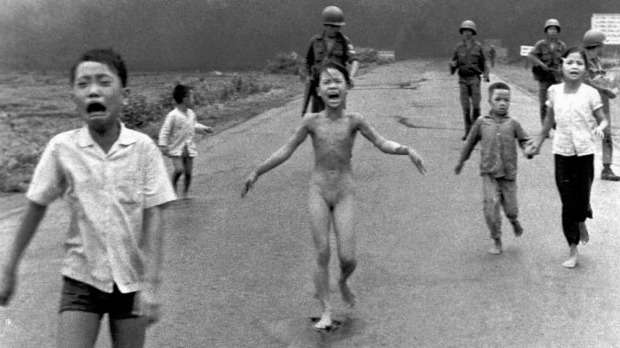
MEDIA
- Ellena Savage
- 11 September 2015
There are few activities more unsettling than viewing the bodies of deceased children. But I'm not convinced that visual tokens of suffering, shared within safe, affluent settings, change much. A photo can suggest that a woman is abused by her partner and motivate people to donate money to a charity. But it won't make anybody voluntarily give up the privilege that fostered the pain.
READ MORE 
-

- Frank Brennan
- 07 September 2015
11 Comments
I believe in Aylan's inviolable, inherent dignity as a human being like all of us, no matter what side of a national border we might live. I believe that a globe of 7.3 billion people with inviolable, inherent dignity confronts huge challenges and real evil when almost 60 million people are displaced. I believe that secure national borders for a country as geographically and jurisprudentially isolated as Australia confronts an enormous moral challenge, and that we are falling short, badly and selfishly.
READ MORE
-

- Frank Brennan
- 01 September 2015
1 Comment
If you want to form government in Australia and if you want to lead the Australian people to be more generous, making more places available for refugees to resettle permanently in Australia, you first have to stop the boats. If you want to restore some equity to the means of choosing only some tens of thousands of refugees per annum for permanent residence in Australia from the tens of millions of people displaced in the world, you need to secure the borders. The untrendy truth is that not all asylum seekers have the right to enter Australia but that those who are in direct flight from persecution whether that be in Sri Lanka or Indonesia do, and that it is possible fairly readily (and even on the high seas) to draw a distinction between those in direct flight and those engaged in secondary movement understandably dissatisfied with the level of protection and the transparency of processing in transit countries such as Malaysia and Indonesia. The popular evil is that political
READ MORE
-
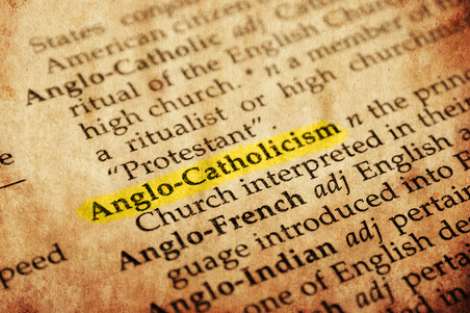
RELIGION
- Kevin Donnelly
- 31 August 2015
23 Comments
Various state based legislation argues that education in government schools should be secular in nature, but it does not rule out a place for religion in the general curriculum. To argue that religions should have a greater place in the school curriculum is not to proselytise. Rather it is to recognise that, while we are a secular society, students need to encounter a more transcendent sense of life that incorporates a strong moral, spiritual and ethical dimension.
READ MORE 
-
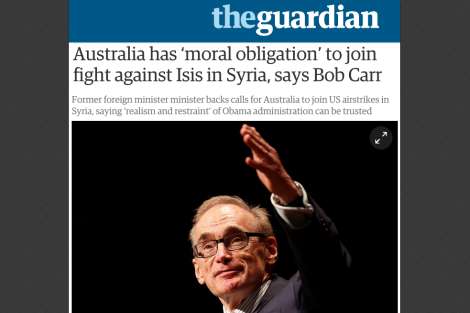
INTERNATIONAL
- Justin Glyn
- 28 August 2015
18 Comments
One would think after the disastrous interventions in Iraq and Libya that Australians would have learned to be just a little bit suspicious when the US Government suggests another Middle East war, or when a politician urges — as Bob Carr and Tony Blair have — that we have a 'moral obligation' to join the legally dubious US bombing mission in Syria.
READ MORE 
-

- Frank Brennan
- 26 August 2015
7 Comments
When addressing Italian doctors last November, Pope Francis quoted St. Camillus de Lellis who suggested that the most effective method in caring for the sick was simply to 'Put more heart into those hands.' Let's do something to change the market settings and political settings here in Australia to modify the behaviour of all Australians in the future, and let's attend to our own Franciscan interior ecological conversion with our care for the vulnerable.
READ MORE
-

- Frank Brennan
- 06 August 2015
3 Comments
Pope Francis is not the first pope to address a social encyclical to everyone. But in comparison with his predecessors, Francis has been more inclusive in the process of writing the encyclical and in the final content of the document. He quotes from 17 different conferences of Catholic bishops. He is at pains to indicate that he is collaborative and that he takes the principle of subsidiarity very seriously. Being the final redactor of the text, he has felt free to interpolate some very folksy advice from time to time. He has also taken the liberty of inserting some very blunt, evocative images of environmental and economic devastation.
READ MORE